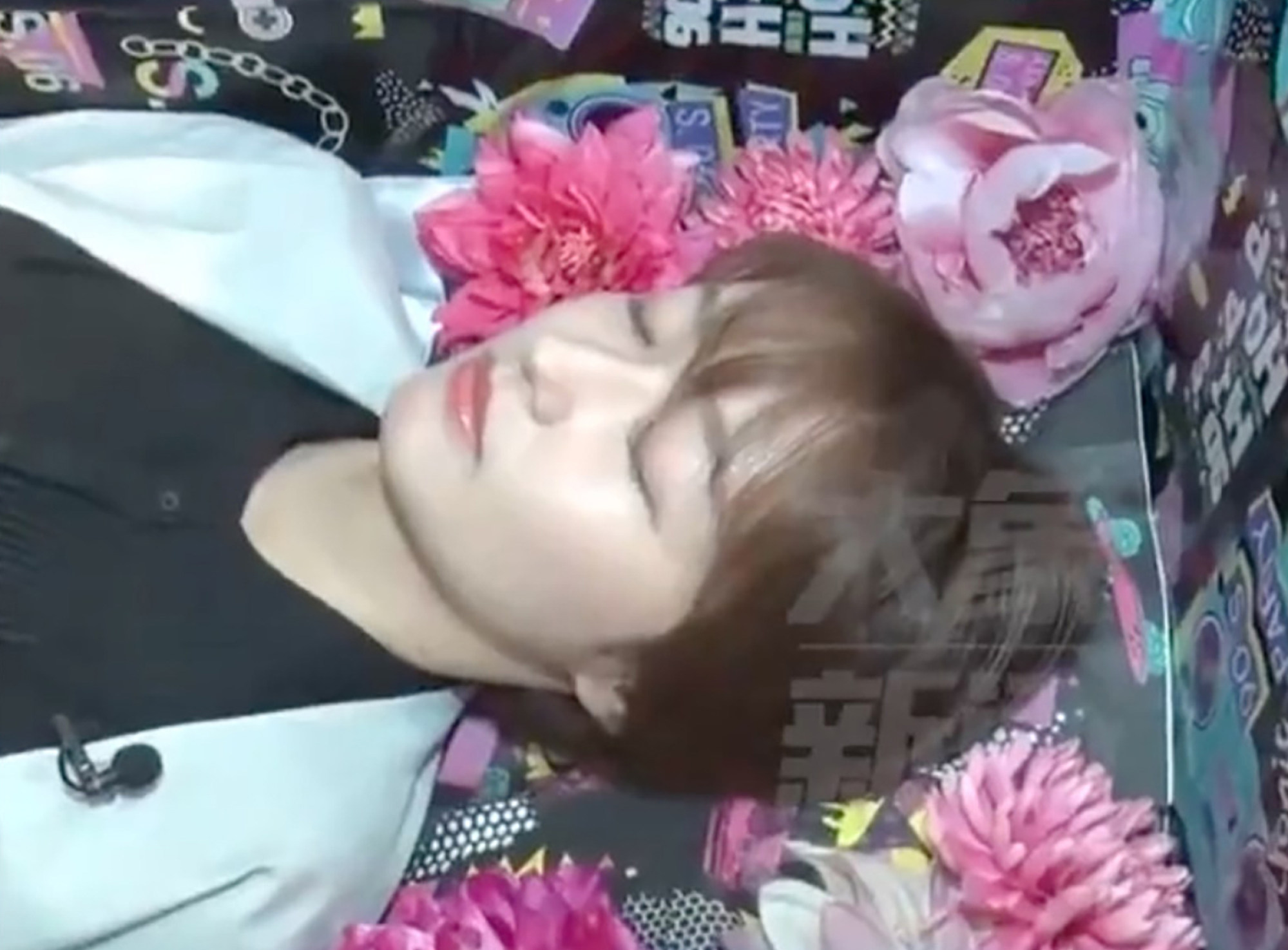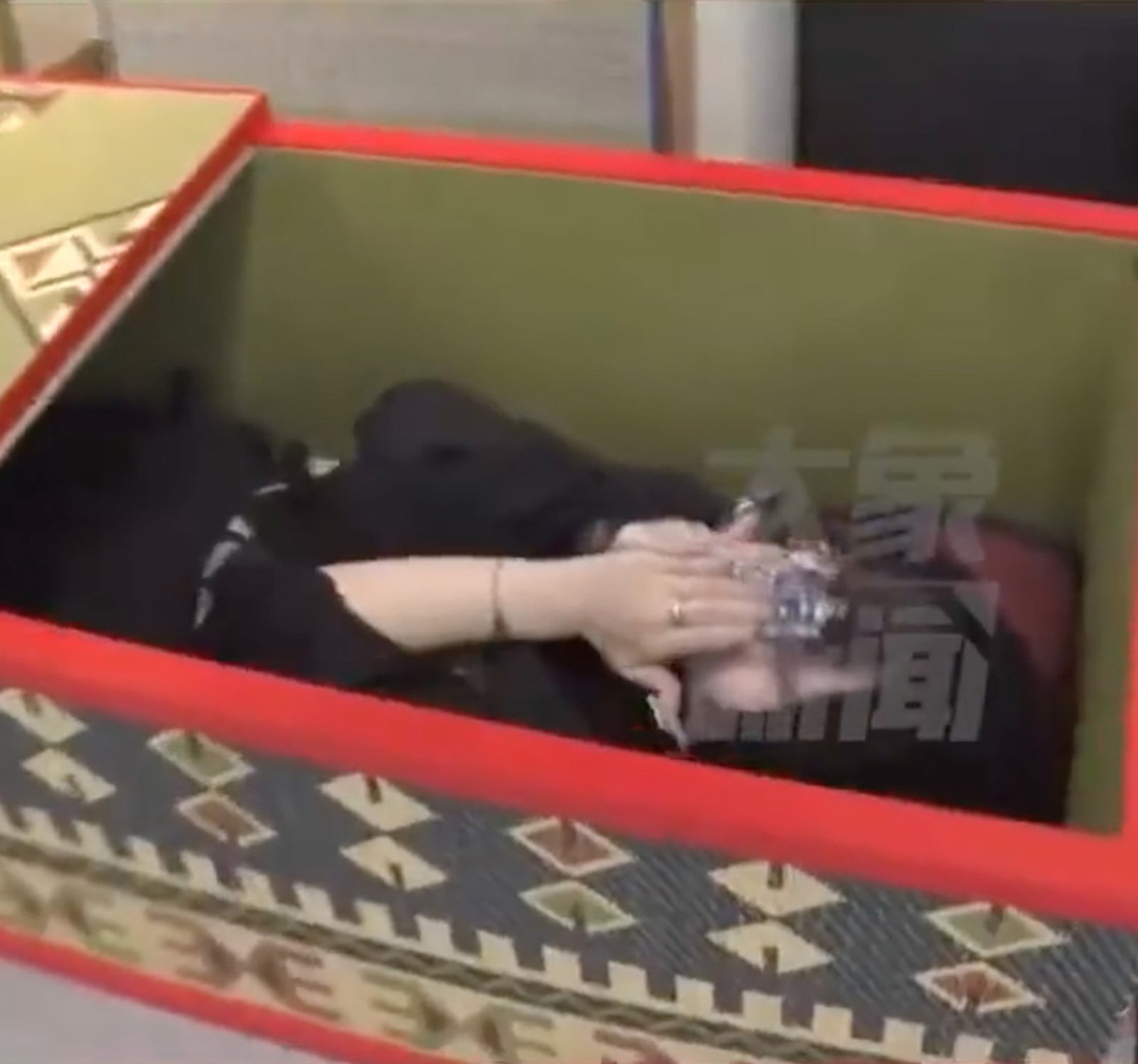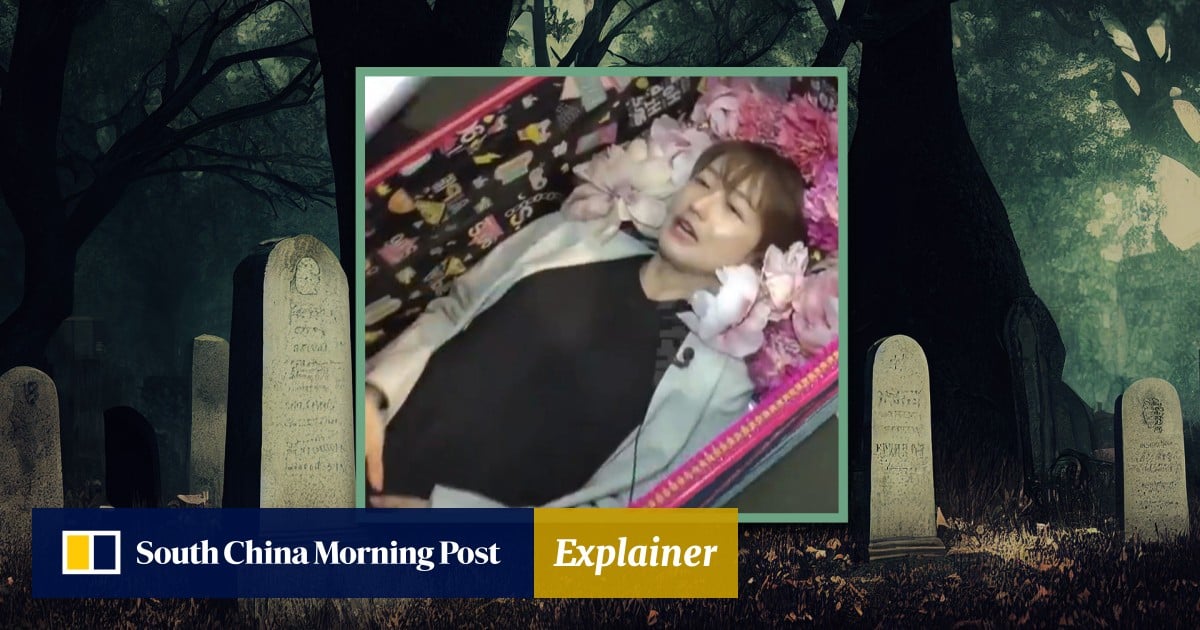What has prompted Japan’s growing interest in death and what similar events take place across Asia? The Post finds out.
Exploring the afterlife
Organised by a consortium of Tokyo-based entities including NGOs, new media companies and funeral professionals, the Death Festival took place in Shibuya, in the bustling heart of the capital.
In Japanese, the number four carries a negative connotation due to its homophonic resemblance to the word “death”.

Despite this, April 14 was designated “Death Day” by the festival’s creators.
During the event, visitors could pay 1,100 yen (US$7) to spend three minutes lying in a coffin.
At the end of the time, staff opened the coffin lid and said: “Welcome back to the world.”
The six-day festival also offered visitors the opportunity to explore the afterlife using virtual reality technology, attend lectures on Japan’s burial traditions, and try food inspired by death.
Confronting mortality
The goal of the festival is to shift societal attitudes, encourage people to confront mortality and engage with the living.
A booklet for the event reads: “At its core, the theme of death illuminates aspects of life such as love, gratitude and connection.”
Japan is a country with a high mortality rate, an extremely low birth rate and an ageing population.
The founders of the festival said their intention was to help people rethink how to live in the present by experiencing death.
“If you start contemplating life from its final moments, you’ll perceive an entirely new world,” said Nozomi Ichikawa, one of the founders.
Death events in Asia
In Shanghai in central China and the city of Shenyang in the northeast, centres offer “death experiences” such as simulating funeral proceedings and cremation.
A participant from Guangdong province in the south of the country shared his experience on Weibo.

“I failed my postgraduate entrance exam and was devastated. But after lying in the coffin, I realised it wasn’t such a big deal,” he said.
Since 2012, tens of thousands of people in South Korea’s capital, Seoul, have taken part in “living funerals”, where they spend about 10 minutes lying in closed coffins.
Japan’s Obon Festival, typically lasting three days in mid-August, involves ancestor veneration through Bon dances, a folk tradition to welcome the spirit of the dead, floating lanterns and visiting graves.
The Zhongyuan Festival, also known as the Ghost Festival, is a traditional holiday in China, Singapore and Malaysia intended to appease the spirits of ancestors.
People offer food and float water lanterns to ensure the spirits find their way home.

